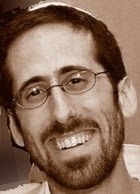 A rabbi friend of mine had major surgery last month. Thankfully, he made it through OK and has now begun a long recovery process.
A rabbi friend of mine had major surgery last month. Thankfully, he made it through OK and has now begun a long recovery process.
Before, during and after the surgery, my Facebook Wall was flooded with posts asking me to pray for my friend. Impromptu minyans were formed online as well as at his congregation in St. Louis. Individual prayer was requested…the tone was concerned yet strident. The message seemed to be: if enough of us pray long and hard enough, my friend would be assured a successful return.
The same approach was prevalent throughout the tragic ordeal Israel has just gone through regarding the murders of Gil-Ad Shaar, Naftali Frenkel and Eyal Yifrach…if anything on a much grander scale. Special prayers and psalms were added to the regular synagogue service and mass gatherings, including one at the Western Wall, attracted tens of thousands of supplicants.
Even the usually secular Yair Lapid got into the prayer space. In a meeting with Bat-Galim Shaar, Gilad’s mother, Lapid said, “I haven’t prayed for six years. Since the bar mitzvah of my son I haven’t been in a synagogue. When the story of your sons broke, I looked through the entire house searching for my grandfather’s siddur (prayer book). I sat and prayed.â€
I didn’t pray for the rabbi in St. Louis or for the three boys. Not that I didn’t want my friend to recover or the boys to be returned home alive and well! It’s just that I’ve always had a hard time relating to the implied end result of the classic understanding of prayer in times of emergency: that God can miraculously bend the laws of nature according to the fervency of words directed in a heavenly direction.
So how does a skeptic like me respond to all those calls to pray spilling forth from my email, social media, and even some news sites? In the aftermath of the horror that has gripped the nation, I suspect I won’t be the only one asking the question.
My first reaction was to respectfully ignore the messages. To say, well, it doesn’t work for me, but everyone has his or her own way of coping. But there was an implied guilt in the entreaties. Maybe I was just reading into them, but they seemed to be chiding me: have you done your part? Have you forwarded this email sufficiently? You don’t want to be the weak link. Are you really so sure of your beliefs?
It was that same kind of thinking that had me ask my father, a devout atheist, five years ago, as he was dying in a California hospital, what his full Hebrew name was.
“Why do you want to know?†he said to me.
“People are asking,†I replied. “They need your Hebrew name to pray for your recovery.†And then I added: “do you mind if they pray for you?â€
“They can if they want to,†he said, as matter of factly as he could between morphine drips. “But it’s not going to change anything.â€
Which it didn’t. He was gone a few days later.
And still: maybe I just don’t get how prayer really works. If only I could drop the defenses and give it a try.
 In the midst of the kidnapping crisis, I came across an article by Leah Bieler that helped put things in perspective. Bieler is a Talmud teacher in the U.S. with a master’s degree from the Jewish Theological Seminary in New York.
In the midst of the kidnapping crisis, I came across an article by Leah Bieler that helped put things in perspective. Bieler is a Talmud teacher in the U.S. with a master’s degree from the Jewish Theological Seminary in New York.
“Individual and communal prayer have in them the potential for tremendous power,†Bieler writes in a piece that appeared in The Forward. “Prayer can force us outside of ourselves, help create and maintain empathy, form community, heal wounded souls. It can redirect our thinking [and] bind us to the past.â€
That certainly seems true enough. Indeed, in times of helplessness, just the act of coming together, even if we say nothing at all, can be tremendously affirming. And isn’t it during those very gatherings that ideas for specific responses are mulled and eventually enacted. Would the campaign to free Soviet Jewry, for example, have been so effective if Jews didn’t have the opportunity to meet every Shabbat to pray…and plan?
Bieler continues: “All of these are holy purposes. But using prayer as a magic trick is a much dicier business. The moment I’m sure that my specific mode of praying will work miracles is bound to be short lived. I will, without fail, find myself disappointed in the end.â€
That set off a stream of angry talkbacks and counter-posts, such as this one from the blogger Elder of Zion: “Wow! I guess all the theologians over the centuries of every religion must bow to the mighty logic of Bieler and stop wasting their time in prayer!â€
But for every counter, there is a counter-counter post. The blogger Atheodox Jew commented on why his wife acceded to a similarly mystical call that was made for Jewish women around the world to light extra Shabbat candles (or to light candles earlier than usual) in the merit of the missing boys.
“Did she light early because she sees the act as a segula, a sort of ‘charm’ or ‘technique’ for aligning spiritual forces in our favor?†he writes. “Certainly not. Did she do it, as most people spoke about, ‘in the merit’ of the boys, meaning that if we accrue enough favor with Hashem (God), He will change His decree and grant the boys’ release? No, that was not her intent either.â€
She did it, in much the same way as Bieler is arguing, as a symbolic act of caring, â€of keeping the fate of the boys and the anguish of their families in our minds and hearts†and as “an expression of solidarity and compassion.â€
At the Jewish Renewal community my family and I attend in Jerusalem, when it’s time for Maariv (the evening prayer) on Friday night, the rabbi suggests that congregants either join with the chazzan (prayer leader) for traditional davening, or sit quietly in mindful meditation. “Just no talking!†she insists.
I usually choose the second option. That should be no surprise: I’ve written before about my personal practice of mindfulness, an approach that focuses on being in the moment; of not “grasping†towards a particular desired outcome or “resisting†negative or painful thoughts and feelings. Prayer for God to intercede in the world seems in some ways to be the opposite of that; a way of covering up the pain with ready-made texts and semi-plausible sentiments rather than fully feeling difficult emotions.
 I asked my teacher, Rabbi James Jacobson-Maisels of the Or HaLev Center for Jewish Spirituality and Meditation, for a comment. After all, he teaches Jewish mindfulness.
I asked my teacher, Rabbi James Jacobson-Maisels of the Or HaLev Center for Jewish Spirituality and Meditation, for a comment. After all, he teaches Jewish mindfulness.
Prayer, when it is about “recognizing what you want and then asking for it or trying to get it is not necessarily being stuck in ‘desire’ or unhealthy ‘aversion’ towards the current situation,†he explains. “It may actually be justice. That is, if I see injustice and I have the desire for justice, I pray for justice, and I act to create justice, then that is all very healthy, as long as I am doing it in a way that recognizes that I also may not get what I want and I can still be present with that.â€
Indeed, mindfulness – that being in the moment and not grasping or resisting – should never be used to shut down desire, Jacobson-Maisels continues. Desire is to be embraced. The key is not getting lost in it. Prayer is important because it “helps us name and express our desires,†he says. “And in my experience, it can connect us with the pain we are experiencing rather than having us run away from it.â€
What seems clear is that Jewish prayer in the modern world can probably be interpreted in as many ways as there are people praying. If I take a step back and drop the judgment; the grasping and aversion, I can almost look forward to that next Facebook request.
This article originally appeared in The Jerusalem Post.

